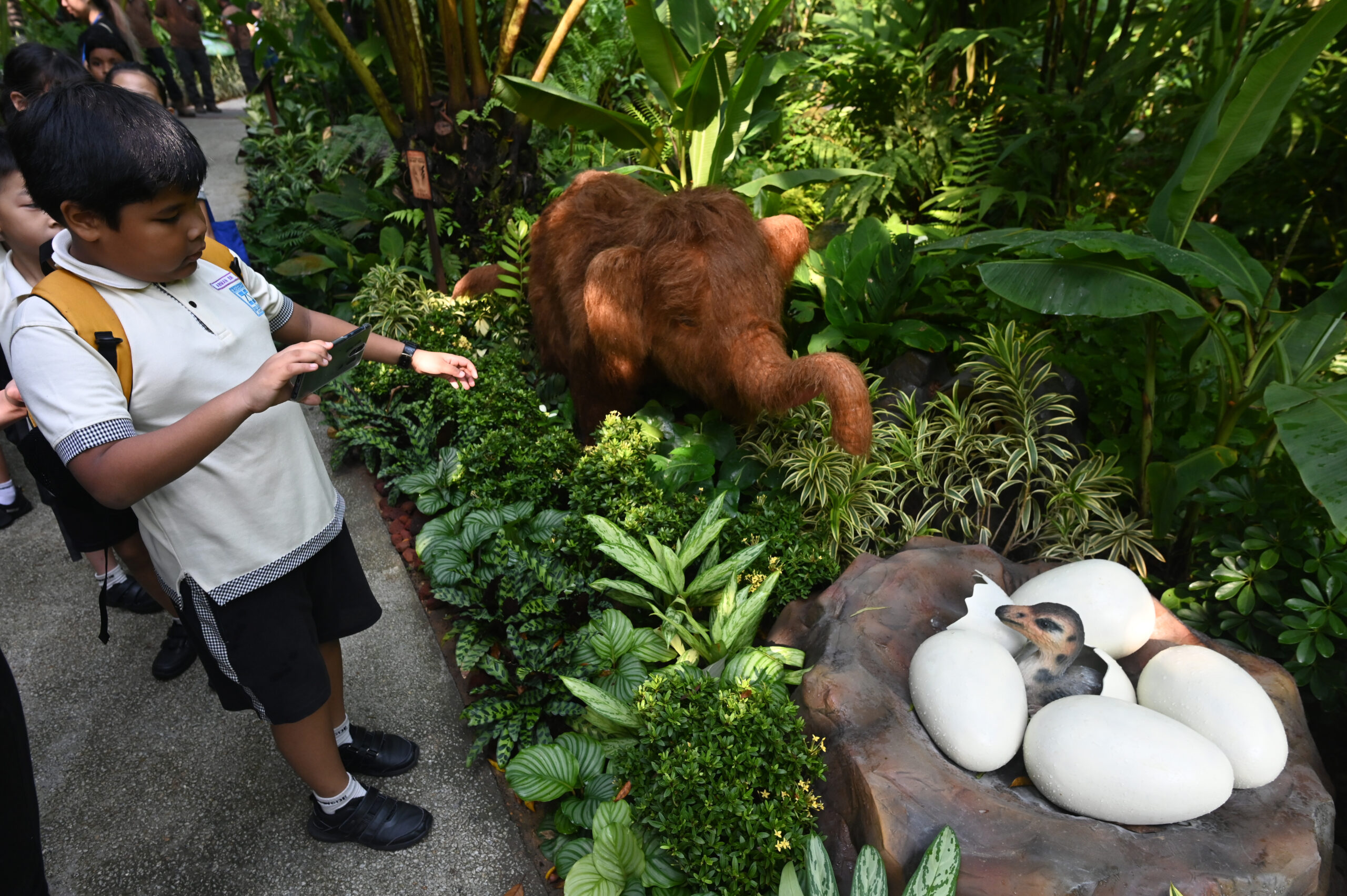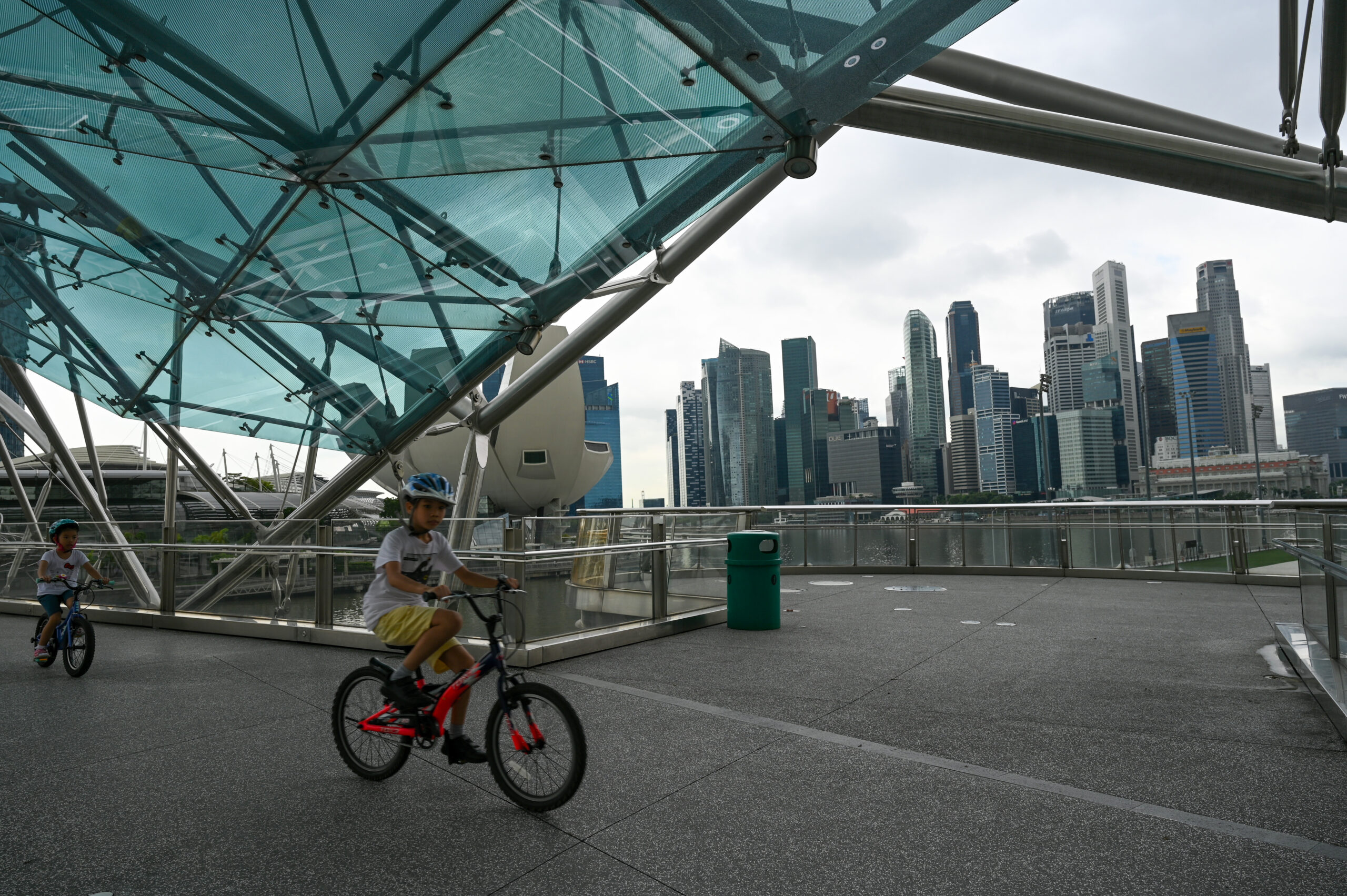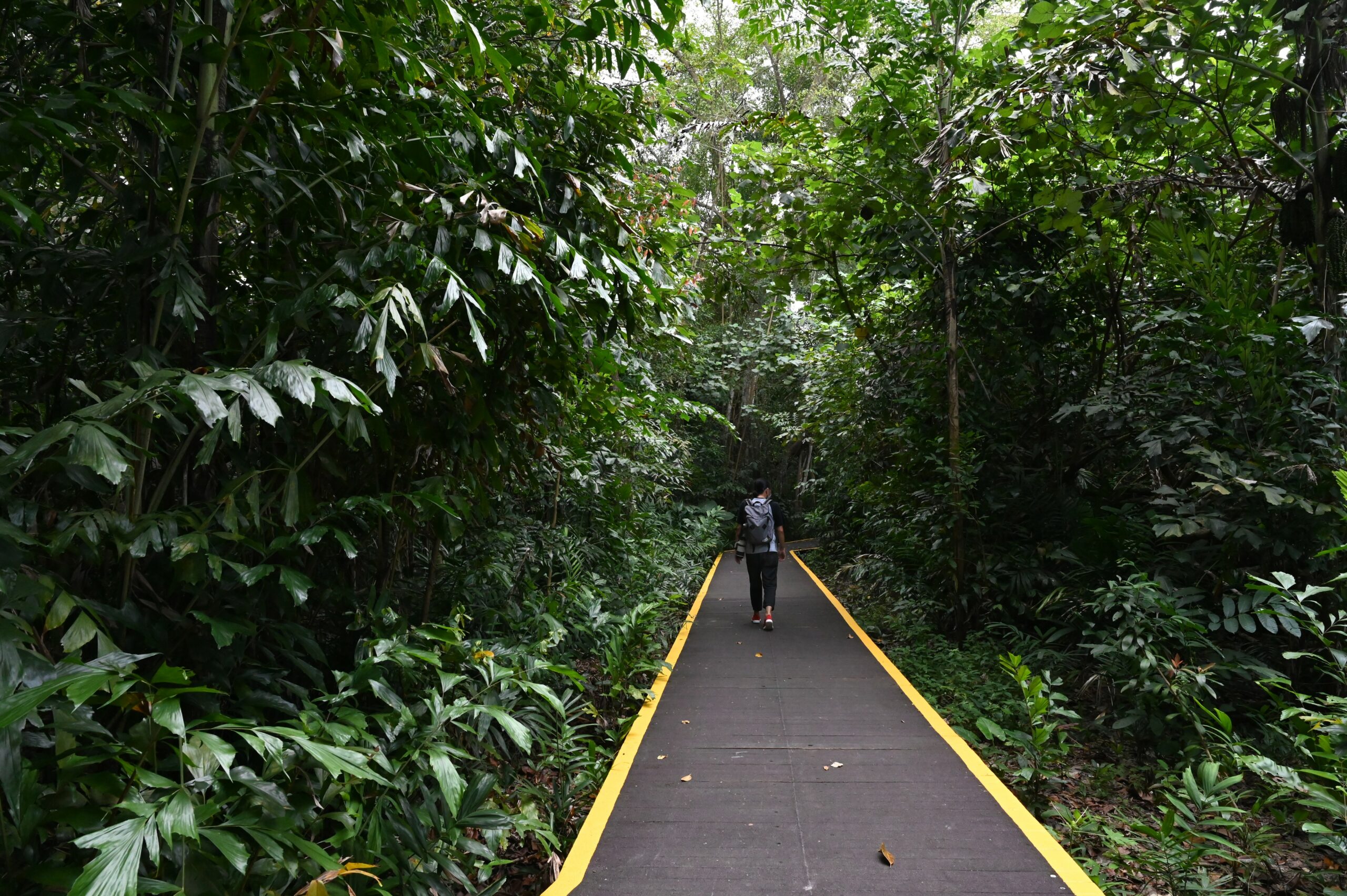I have always believed that some of the greatest knowledge we could gain was already contained in the natural world and that there is much we could learn from children.
This became even clearer to me when the pandemic struck while I was homeschooling my children.
Covid-19 and the associated challenges are connected, or so my daughter argues, to “the silliness of humans.” She is not convinced mankind is superior to other beings.
“We have the ability,” she acknowledges, “but we’re not using it wisely.”
“We share 60% of the genetic material of bananas and we’re not as useful,” my son adds.
This leads to a debate about what humans could do differently and how much progress we have made in spheres ranging from science to sports and culture.
The fact is that Covid-19 has forced dramatic changes and a re-examination of innumerable aspects of our lives including schooling and our relationship with the natural world. In Singapore, as elsewhere, the link between human impact on the environment and pandemics has become increasingly clear.
As people stayed inside during lockdowns, the natural world outside seemed to flourish. And with growing environmental awareness, it was perhaps natural that children, who stand to inherit the earth, became the unexpected educators of adults.

In the 21st century we have experienced multiple disease outbreaks including SARS, Ebola, Avian Flu, Swine Flu and now Covid-19. Scientists have pointed to various causes, but the clear common thread is the impact of human action on the natural world.
In harnessing nature for our purposes, from construction to farming, ecosystems have been damaged and with increasing standardisation, biodiversity has been reduced even further, despite the need for genetic variety within species to withstand disease and survive.
In Singapore, for instance, primates such as the Raffles banded langur are now critically endangered and an estimated 132 species of butterflies are considered extinct.
There are approximately 1.67 million viruses yet to be identified on our planet, with an estimated 631,000 to 827,000 that have the potential to infect humans.
Climate change and changes to natural ecosystems have enabled microbes and disease-transmitting vectors to flourish. Deforestation and the wildlife trade have erased the buffers and boundaries between humans and wildlife, increasing the likelihood of disease transference across species.
In an increasingly interconnected world, these are not the only boundaries that have been affected. The level of cross-border travel and trade means that disease transmission occurs at an unprecedented rate and scale, as we have seen with Covid-19.
So any meaningful solution must recognise the web of interdependence linking human health and wellbeing to that of plants, animals and the environmental system as a whole.

As we were homeschooling our children prior to the pandemic, we suffered less obvious disruption to our school routine at the start of the ‘circuit breaker’ period, the height of Singapore’s Covid-19 restrictions.
On the other hand, the supplementary activities that had provided social and nature engagement – the nature walks and park visits, playdates and music classes – all came to a grinding halt. So too did the holidays that had helped expand the children’s horizons and worldview.
It was during the circuit breaker that my daughter developed an avid interest in watching birds with her binoculars, a hobby that has endured. It was as if she sensed the need to connect with nature in some capacity, even if from a distance.
It turns out that the importance of nature to human wellbeing is not restricted to disease prevention. The therapeutic capacity of the natural world is substantial, from providing cures and antidotes to addressing psychological ailments.
A 2019 University of Exeter study found that 120 minutes per week in natural environments is the minimum amount of time we need to reap the benefits of good health and psychological wellbeing.
The therapeutic capacity of the natural world is substantial, from providing cures and antidotes to addressing psychological ailments
Interestingly, one of the few positive consequences of Singapore’s circuit breaker period and the enforced slowdown in the maintenance of green spaces was the flourishing of natural ecosystems and greater biodiversity.
As once uncommon wildflowers grew, so too did insect populations such as bees and butterflies, as well as birds. Our family saw a Great Hornbill as it landed on our wall and other residents across the island reported similar sightings.
One benefit of this growth has been a shift in focus by the National Parks Board (NParks) from developing Singapore as a ‘City in a Garden,’ with its associations of manicured landscapes, to making it a ‘City in Nature,’ allowing for more natural landscapes and greater natural diversity.
The pandemic also prompted greater interest in gardening and urban farming. Aspiring gardeners cited reasons ranging from food self-sufficiency and, importantly, the need to reconnect with nature, to finally having time to spend on gardening. And NParks supported these efforts by leasing plots and providing a range of learning resources including online gardening tutorials and videos.
Some time ago our family witnessed a palm tree being felled in our neighbourhood. My children were quite upset on the tree’s behalf. My husband pointed out that the tree may have posed a potential hazard by falling and hurting someone. We were fortunate, he said, to be living in a city that took nature seriously and where greenery had been a vital part of urban planning from the start.
“So rather than focusing on that one tree, think about the others that are being planted every day,” he reasoned.
“So a tree is totally replaceable?” my son countered.
“And if a person dies, that’s fine because another is born?” my daughter added.
Although in my capacity as parent and teacher, I tried to offer alternative perspectives to balance my children’s views, it occurred to me – as it so often does – that I would do well to listen and learn from them.
Maybe it is that very combination of humility about ourselves and respect for all of nature that we will need to steer ourselves toward a better, shared future.

Alaka Skinner, Ph.D., is an author, storyteller and executive coach. She writes for children and adults about sustainability, empathy and diversity. Her children’s book, “Are You Listening?”, has been featured by BBC regional radio and the Greenpeace Storytelling team.


